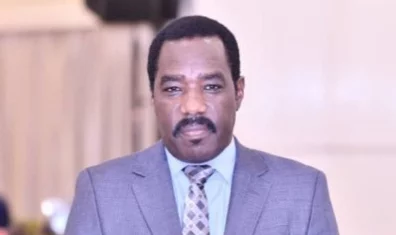Justice in Power-Sharing Is Not a Political Luxury, but a Cornerstone of Nation-Building

By Moatasem Ahmed Salih
Political Secretary of the Sudanese Justice and Equality Movement (JEM)
The Juba Agreement for the Peace of Sudan was never intended to be a superficial political settlement or a symbolic share of power. Rather, it sought to redress a historic imbalance in the fair distribution of power, wealth, and civil service positions—an imbalance that has long denied millions of Sudanese their rightful place in their own country.
Reducing the issue to a mere 25% numerical share distorts the essence of the agreement, which represents a corrective path for the Sudanese state since independence.
If this issue were merely symbolic, as some have suggested in the article “Risks and Opportunities,” then the defunct regime was arguably the most skilled at manipulation and symbolic deception. Yet, the people rejected it because it failed to address the core crisis. Our view of distributive justice in power is a principled one—rooted in a genuine partnership that encompasses all the institutions of the state: sovereign, executive, security, and civil. This is not just about seats in government, but about embedding justice at every level of the state structure.
Regarding the claims that the Justice and Equality Movement and the Sudan Liberation Movement are competing for specific ministries, we affirm that this is not about personal ambition or power struggles. It is about defending a rightful claim—a claim meant to correct chronic developmental and political imbalances.
Regarding suggestions that the people of Darfur and Kordofan are solely responsible for their own fate, let us be clear: protecting citizens is the responsibility of the state. Questions of this nature should be addressed to the relevant authorities—not to those who have consistently offered their lives in defence of this country, without discrimination between one region and another, unlike some who do.
The repeated reference to “power-sharing” as if it were an end in itself belittles the decades-long struggle of people who have made enormous sacrifices. The battle for dignity and honour currently being waged by the people of Darfur, Kordofan, and Blue Nile, side by side with the Sudanese Armed Forces, is living proof that no amount of political opportunism or doubt will deter us from the truth or alter the fact that we are equal partners in this nation—not mere spectators.
It is time to acknowledge that building a just and stable nation will not be achieved through slogans or political cunning. It requires genuine willpower to recognise that balanced participation in power and wealth is not a favour granted by anyone but a fundamental right for all components of Sudan.
The Juba Peace Agreement was but a first step on a long road to rebuilding the state on the basis of citizenship and justice. Those who see it as a burden or a political luxury are wilfully ignoring the lessons of history and the high price these people have paid for marginalisation.
We do not ask for privilege—we demand our entitlement. And we firmly believe that this country has no future unless a true partnership is forged that ends exclusion and lays the foundation for a new republic where all are equal in rights and duties.
Shortlink: https://sudanhorizon.com/?p=6275

